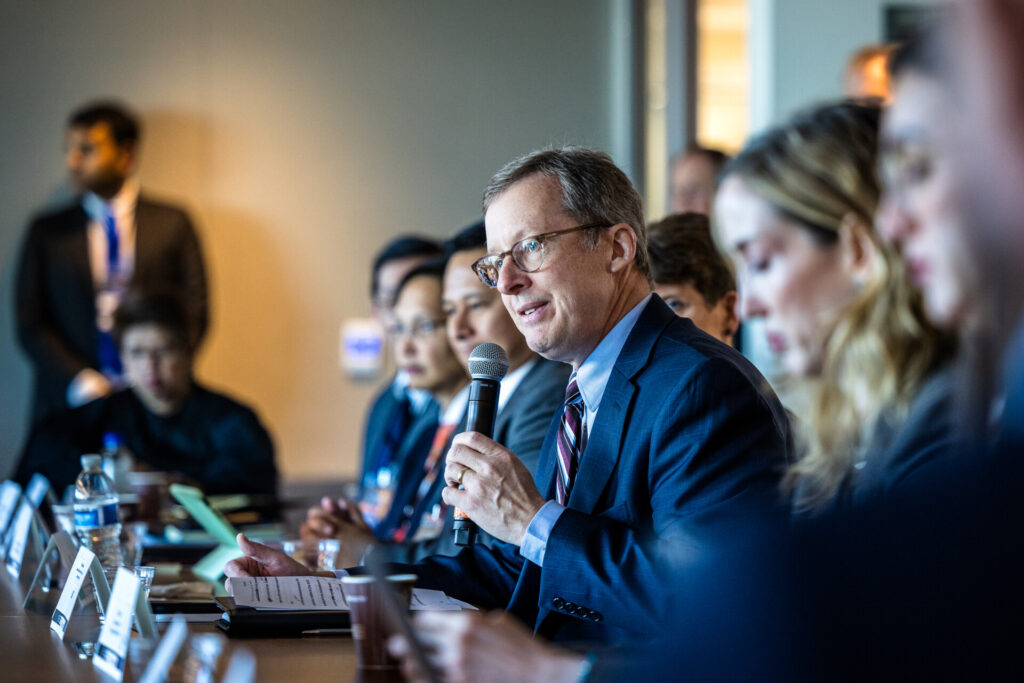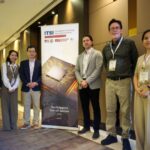Representatives from Costa Rica, Vietnam and the Philippines part of 3-day forum in Tempe
As the global demand for semiconductors accelerates — with projections reaching $1 trillion by 2030 — Arizona State University, in partnership with the U.S. Department of State, hosted the Government Leaders Forum to address challenges and opportunities in building resilient semiconductor supply chains.
The three-day forum, held Nov. 18–20 on ASU’s Tempe campus, convened leaders from Costa Rica, Vietnam and the Philippines to discuss workforce development and strategies for enhancing assembly, testing and packaging (ATP) capabilities in allied nations.
This convening is part of the International Technology Security and Innovation (ITSI) project, funded through the CHIPS and Science Act of 2022, which seeks to diversify semiconductor supply chains while strengthening workforce capacity in key partner countries.
“So for the last couple of years, we have been working hard to try to reestablish or boost the semiconductor industry in the United States to create jobs in places like Arizona, Texas, Ohio, New York and elsewhere,” said Robert Garverick, deputy assistant secretary for trade policy at the U.S. Department of State.
“But we recognize that we can’t do all aspects of the supply chain for semiconductors. It’s a very complex system, and in that sense, we want to work with trusted partners and allies to build out some of those partnerships abroad.”

Rob Garverick, deputy assistant secretary for trade policy for the U.S. Department of State, speaks Nov. 18 during the Government Leaders Forum, a three-day event on ASU’s Tempe campus that convened members of the U.S. Department of State, ASU leadership and international government representatives from Costa Rica, Vietnam and the Philippines to advance partnerships that will support more diversified semiconductor supply chains. Photo by Charlie Leight/ASU News
Arizona plays a vital role in this effort. As home to major semiconductor manufacturers like Intel and TSMC, the state has established itself as a global hub for semiconductor manufacturing and research. ASU, with its track record of leadership in public-private partnerships and semiconductor education, connects Arizona’s expertise in front-end production — such as wafer fabrication — with the ATP processes developed by international partners.
“In Arizona, we’re not only securing the back end of the supply chain but building capacity and expertise to support this industry’s growth globally,” said Jeff Goss, principal investigator of the ITSI program.
The ITSI Workforce Accelerator Program is a cornerstone of the project, addressing critical workforce shortages in partner nations. Costa Rica, Vietnam and the Philippines have already launched ambitious initiatives to train tens of thousands of individuals. Costa Rica’s program aims to engage over 9,000 participants in faculty certifications and training courses, while Vietnam and the Philippines will each upskill more than 16,000 workers to strengthen their positions in the global supply chain.
“Semiconductors are not just a technical necessity; they are a foundation for economic growth,” said Indiana Trejos, vice minister of foreign affairs for Costa Rica. “This partnership with ASU ensures our people are equipped with the skills and knowledge to meet the demands of the semiconductor industry and establish Costa Rica as a leader in technological innovation.”
Industry insights presented during the forum emphasized the importance of collaboration. Mary Thornton, vice president for global policy at the Semiconductor Industry Association, highlighted the challenges of a concentrated supply chain and the urgent need to develop resilient alternatives.
“The global semiconductor market is worth billions, yet key capabilities remain concentrated in a few regions,” Thornton said. “Through the ITSI project, we are fostering collaboration that ensures a diversified, secure and robust supply chain for decades to come.”
The Government Leaders Forum also set the stage for the next phase of ITSI, which will expand in early 2025 with kickoff events in Mexico, Panama and Indonesia. These countries will join the initiative to strengthen semiconductor workforce development and support ATP capabilities, furthering ITSI’s mission of global supply chain diversification.
“This forum is a milestone in a much larger journey,” Goss said. “By working across borders and aligning our efforts, we’re building the foundation for a resilient semiconductor future that benefits both the U.S. and our global partners.”


